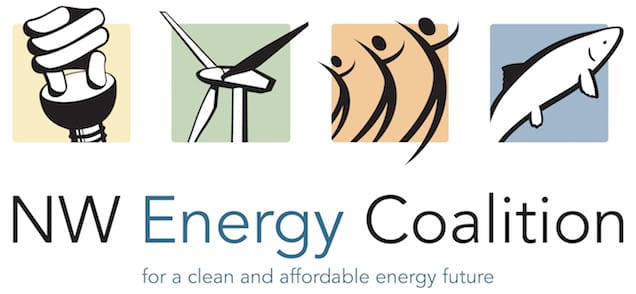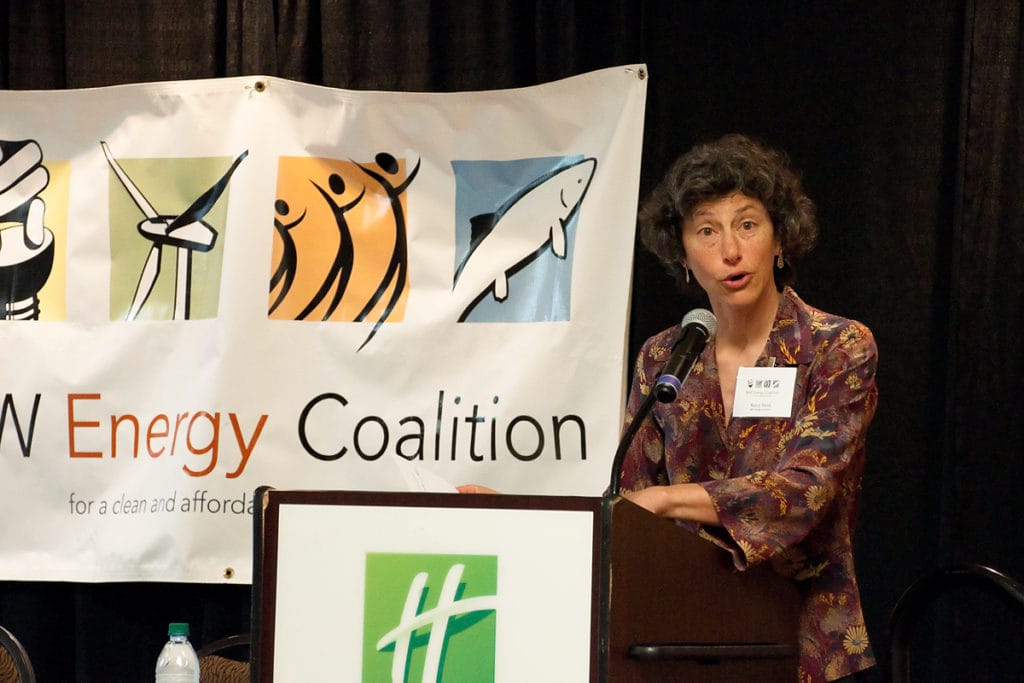Homepage Banner
BPA announces a better solution for I-5 corridor congestion
Seattle, Wa. — The NW Energy Coalition applauds today’s announcement by the Bonneville Power Administration (BPA) that it will not move forward with construction of a proposed 80-mile, 500-kilovolt transmission…
A region finding its way to a clean energy future
Dispatch from the NW Energy Coalition Spring 2017 Clean & Affordable Energy Conference At a time when the federal government seems poised to reverse policies designed to reduce pollution, cut greenhouse…
Oregon can become a leader in energy efficient building
In Oregon, House Bill 2710 will help the state reform building codes in ways that: Reduce energy bills for owners and renters Make the air cleaner and temperatures more comfortable in homes…
NWEC supports Sen. Ron Wyden in defending the BLM Methane Rule
Rule’s repeal would pollute the atmosphere and cost taxpayers hundreds of millions of dollars Today, the NW Energy Coalition and the Western Environmental Law Center announced their support for U.S.…
NW Energy Coalition supports Clean Energy First Act in Olympia
At a moment when it’s imperative that states take the lead in fighting climate change and promoting clean air and water, the NW Energy Coalition is joining five other groups in proposing the Clean Energy First Act (HB1334) in the Washington state legislature.
NWEC presents annual Conservation Eagle Awards
The Okanagan Nation Alliance and Elizabeth May, MP, honored:
The NW Energy Coalition’s Bob Olsen Memorial Conservation Eagle award is presented annually to organizations and individuals that demonstrate sustained and effective leadership in building a clean and affordable energy future. It is the highest award the NW Energy Coalition (NWEC) can bestow.
Clean up the grid and electrify everything
Amid uncertainty about what recent election results will mean for environmental policy and the fate of the planet, a remarkable clarity pervaded the NW Energy Coalition Clean & Affordable Energy conference this past Thursday in Portland. David Roberts, Vox energy and climate columnist and the conference’s keynote speaker, opened the day by reminding an audience of more than two-hundred that, regardless of coming battles and possible changes in energy and environmental policy both in Washington DC and in the Northwest, there remains a simple imperative. If we are to avoid doing catastrophic damage to the planet and to ourselves, “we must clean up the grid and electrify everything.”
The New NW Energy Coalition 5-Year Strategic Plan
The causes for which the NW Energy Coalition advocated at the time of its founding in 1981 – energy efficiency, the adoption of new renewable energy resources, wildlife and fish protection and equity for low-income people – are now so widely embraced, it’s hard to imagine they were ever controversial. But, widespread acceptance of those values is triggering diverse and often conflicting visions for how they should be realized.
NW Energy Coalition issue paper weighs benefits and opportunities for vehicle electrification
Transportation is one of the most polluting, energy-inefficient sectors of our economy, and the Pacific Northwest is uniquely positioned to leverage its clean electricity resources to change that. State and local policy should foster a greater role for the region’s electric utilities in electrifying transportation, not only for passenger vehicles but also for buses, short-haul vans and trucks, and non-road industrial equipment such as forklifts and shore power.











![proterra kc livery[1] proterra kc livery[1]](https://nwenergy.org/wp-content/uploads/2016/01/proterra-kc-livery1.jpg)